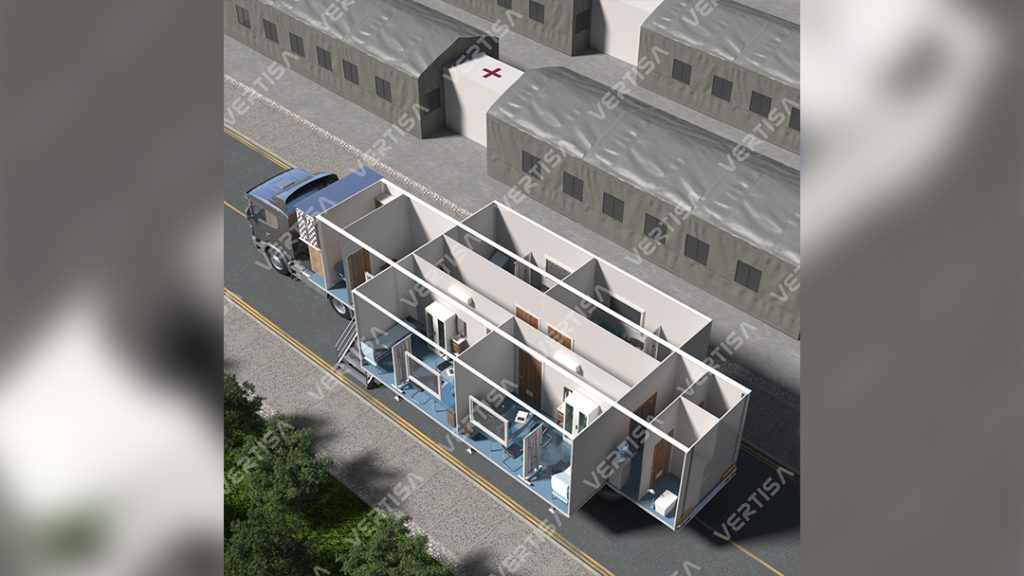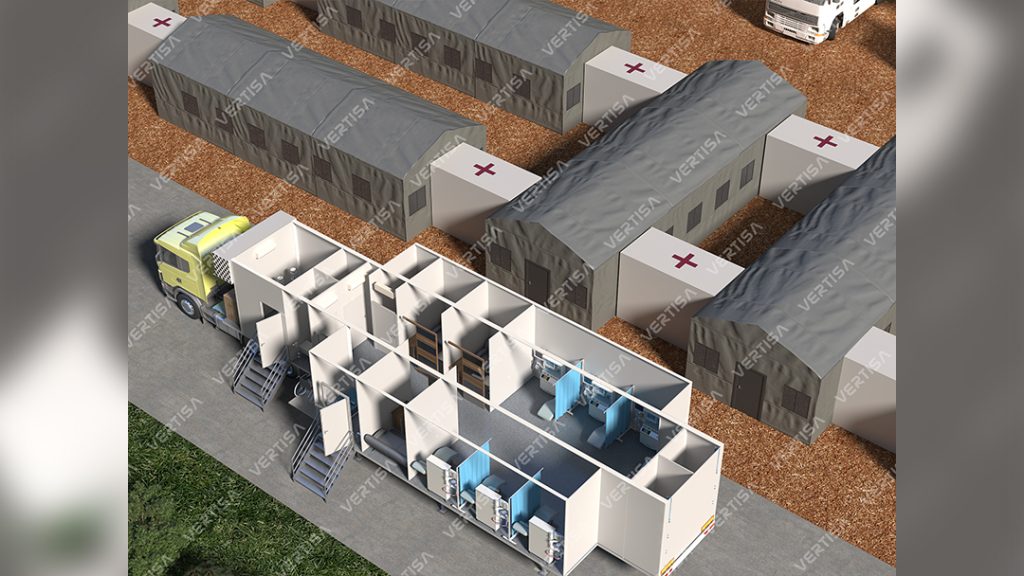Introduction:
The Emergence of Mobile Health Units and Their Significance
In recent years, the concept of a “mobile health unit” has gained tremendous momentum within the healthcare sector. These innovative and adaptable units are changing the landscape of medical services by reaching remote and underserved populations. This article aims to comprehensively explore the multifaceted impact of mobile health units, shedding light on their numerous benefits, the challenges they face, and their potential to reshape the global healthcare landscape.
Benefits of Mobile Health Units:
Enhancing Accessibility: Breaking Barriers and Reaching Remote Areas Mobile health units play a pivotal role in dismantling geographical barriers to healthcare access. By venturing into remote and hard-to-reach areas, these units provide medical services to populations that would otherwise struggle to obtain essential care. Whether stationed in rural villages or dispatched to disaster-stricken zones, mobile health units ensure that quality healthcare reaches those who need it most. This accessibility is a crucial step towards achieving universal healthcare coverage.
Timely Medical Interventions: Swift Responses in Crisis Situations
During emergencies, such as natural disasters or disease outbreaks, rapid medical response can mean the difference between life and death. Mobile health units are uniquely equipped to deliver swift medical interventions to affected areas. Equipped with essential medical supplies, skilled personnel, and the ability to establish temporary medical facilities, these units offer a lifeline to communities facing critical health challenges.
Cost-Efficient Healthcare: Optimizing Resources for Wider Reach
The cost of establishing traditional brick-and-mortar healthcare facilities can be exorbitant. Mobile health units provide a cost-effective alternative, allowing healthcare providers to maximize their resources and extend their reach. By operating from a mobile platform, these units eliminate the need for permanent infrastructure while maintaining the quality of care. This cost-efficiency enables medical organizations to allocate funds towards improving medical services and reaching more communities.
Challenges and Considerations:
Logistical Hurdles: Navigating Operational Challenges on Wheels
Operating a mobile health unit comes with its share of logistical challenges. Ensuring a steady supply of medical equipment, maintaining vehicle functionality, and managing personnel schedules require meticulous planning. Additionally, navigating diverse terrains and adverse weather conditions can hinder the smooth operation of these units. Overcoming these logistical hurdles demands a combination of efficient planning, innovative solutions, and dedicated personnel.
Technological Integration: Ensuring Seamless Connectivity and Data Management
In the digital age, seamless connectivity is essential for effective healthcare delivery. Mobile health units rely on technology for various tasks, including patient data management, telemedicine consultations, and real-time communication with central healthcare facilities. However, maintaining consistent connectivity in remote areas can be challenging. Robust technological solutions and contingency plans are crucial to ensuring uninterrupted communication and data management.
Community Engagement: Fostering Trust and Participation for Long-Term Success
The success of mobile health units goes beyond medical interventions; it hinges on community engagement and trust-building. Mobilizing communities to actively participate in healthcare programs requires cultural sensitivity, effective communication, and a deep understanding of local needs. Mobile health units must collaborate with community leaders and stakeholders to ensure that their services align with community preferences and values. This approach fosters long-term success and sustainability.
Mobile Health Units as Catalysts for Change:
Transforming Preventive Care: Promoting Proactive Health Measures Mobile health units are uniquely positioned to prioritize preventive care and health education. By conducting regular screenings, vaccinations, and health workshops, these units empower communities to take proactive steps towards better health. Preventive measures not only reduce the burden on healthcare systems but also contribute to improved overall community well-being.
Empowering Public Health Campaigns: Targeted Interventions for Epidemic Control
In times of health crises, such as disease outbreaks or pandemics, mobile health units become vital tools for epidemic control. These units can be mobilized to conduct mass screenings, administer vaccines, and disseminate crucial information to curb the spread of diseases. Their flexibility and mobility allow for rapid deployment to affected areas, enabling a swift and coordinated response.
Education and Awareness: Spreading Medical Knowledge Wherever Wheels Roll
Education is a cornerstone of healthcare improvement. Mobile health units serve as platforms for raising awareness about prevalent health issues, proper hygiene practices, and disease prevention strategies. Through interactive workshops, informative pamphlets, and one-on-one consultations, these units contribute to enhancing health literacy within communities.
The Future of Mobile Health Units: Expanding Horizons and Addressing Global Health Challenges
As we move further into the 21st century, the role of mobile health units continues to evolve, presenting new opportunities and challenges for the future of healthcare. The potential impact of these units extends beyond their current capabilities, as technological advancements and innovative approaches open up new horizons.
Technological Advancements in Mobile Health Units:
The integration of cutting-edge technology is poised to revolutionize the capabilities of mobile health units. Miniaturization of medical equipment, such as portable diagnostic tools and remote monitoring devices, empowers healthcare professionals to provide a wider range of services directly in the field. Advanced telemedicine platforms enable real-time consultations between mobile health units and central hospitals, allowing for immediate expert guidance even in remote locations.
Artificial Intelligence (AI) and Mobile Health Units:
One of the most promising areas of development is the incorporation of artificial intelligence into mobile health units. AI-driven algorithms can aid in diagnosing common medical conditions, interpreting diagnostic images, and predicting disease outbreaks based on data analysis. This not only enhances the efficiency and accuracy of medical interventions but also contributes to data-driven decision-making for public health initiatives.
Global Health Outreach and Humanitarian Aid:
Mobile health units have already demonstrated their crucial role in providing humanitarian aid during crises. Going forward, these units can play an even more significant part in addressing global health challenges. Whether it’s delivering vaccines to remote areas, providing essential maternal and child health services, or offering rapid response to infectious disease outbreaks, mobile health units have the potential to save lives on a global scale.
Environmental Sustainability and Mobile Health Units:
The future of mobile health units is also intertwined with environmental sustainability. As the world grapples with climate change, the healthcare sector must find ways to reduce its carbon footprint. Mobile health units, with their flexibility and reduced infrastructure demands, can contribute to more environmentally friendly healthcare delivery. By utilizing renewable energy sources, adopting eco-friendly practices, and optimizing travel routes, these units can set an example for environmentally conscious healthcare provision.
Empowering Local Healthcare Systems:
In many underserved regions, mobile health units can serve as catalysts for strengthening local healthcare systems. By collaborating with existing healthcare facilities, these units can provide specialized services, training, and capacity-building support. This collaboration not only enhances the quality of care but also empowers local healthcare providers with new skills and knowledge, fostering sustainable improvements in healthcare delivery.
Research and Data Collection:
Mobile health units can also become valuable sources of data for medical research and public health surveillance. The diverse populations they serve, often in challenging environments, offer unique insights into various health issues. Aggregated and anonymized data collected by mobile health units can contribute to epidemiological studies, disease modeling, and the identification of emerging health trends.
Public-Private Partnerships and Funding:
As the scope of mobile health units expands, the importance of public-private partnerships and sustainable funding mechanisms becomes evident. Governments, non-governmental organizations, and private sector entities can collaborate to ensure the continued operation and growth of mobile health initiatives. This includes funding for vehicle maintenance, medical supplies, technological upgrades, and training programs for healthcare personnel.
Ethical Considerations and Cultural Sensitivity:
As mobile health units reach diverse populations with varying cultural norms and beliefs, ethical considerations and cultural sensitivity become paramount. Healthcare providers operating in mobile units must receive training to navigate cultural differences respectfully. Moreover, privacy and data security must be upheld to maintain trust between healthcare providers and the communities they serve.
Education and Empowerment:
Looking ahead, education and community empowerment must remain central to the mission of mobile health units. Beyond providing medical services, these units should focus on health literacy, encouraging individuals to take charge of their well-being. Workshops on nutrition, sanitation, family planning, and disease prevention can empower communities to make informed health decisions, leading to healthier lifestyles and reduced healthcare disparities.
Conclusion:
In the grand tapestry of modern healthcare, mobile health units stand as vibrant threads, weaving together accessibility, innovation, and social responsibility. From their humble beginnings as roving clinics to their current status as dynamic healthcare hubs, mobile health units have come a long way. As we contemplate their future, we envision a world where quality healthcare transcends barriers, reaching every corner of the globe through the wheels of compassion, technology, and unwavering commitment to human welfare.




